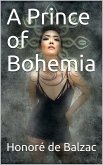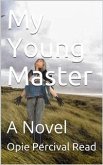"Another Study of Woman" is a narrative hovering between a short story and a novella in terms of length, extracted from Honore de Balzac's multi-volume masterpiece The Human Comedy. At a private dinner party, guests warmed by the flush of fine food and drink begin to banter about the qualities and attributes that characterize the ideal woman. Gradually, the guests begin to reminisce about their own experiences and encounters with perfect and not-so-perfect women. Throughout the entertaining back-and-forth, Balzac presents a number of keen insights about the social mores governing women's behavior in nineteenth-century Europe.
Bitte wählen Sie Ihr Anliegen aus.
Rechnungen
Retourenschein anfordern
Bestellstatus
Storno









